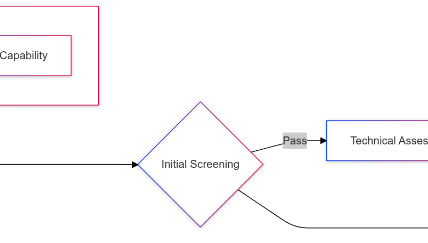Navigating Force Majeure: How Unforeseen Events Impact Financial Contracts and Business Obligations
What is a Force Majeure Clause?
The term “force majeure” translates to “superior force” and refers to an event that is beyond the control of the contracting parties and prevents them from fulfilling their contractual obligations. A force majeure clause is included in contracts to relieve parties from their duties when such unforeseen events occur.
Common examples of force majeure events include natural disasters like hurricanes or earthquakes, acts of war, government actions such as lockdowns or trade embargoes, and pandemics like COVID-19. These events are typically characterized by their unpredictability and the inability of either party to prevent or mitigate them.
Key Elements of a Force Majeure Clause
For a force majeure clause to be invoked, several essential elements must be present:
-
The existence of an unexpected, supervening event: The event must be unforeseen and not anticipated by either party at the time of contract signing.
-
The event must be beyond the control of the contracting parties: Neither party should have any influence over the occurrence or outcome of the event.
-
The event must make performance of the contract impossible or significantly hindered: The clause should specify that the event renders performance either impossible or so difficult that it would be unreasonable to expect compliance.
The language used in a force majeure clause is critical. It governs whether the clause can be invoked and under what circumstances. Specificity is key; vague language can lead to disputes and legal challenges.
Impact on Contract Performance
When a force majeure event occurs, it can significantly alter the terms of contract performance. Here are some key impacts:
-
Suspension or extension of performance deadlines: The clause may allow for temporary suspension or extension of deadlines until the force majeure event ceases.
-
Mitigation efforts: Parties are often required to take reasonable steps to mitigate the effects of the force majeure event and communicate their actions to all other parties involved.
-
Potential for contract termination: If the force majeure event persists beyond a specified period, it may lead to contract termination.
Clear communication among all parties is essential during this time to ensure transparency and cooperation.
Mitigation Obligations and Communication
When invoking a force majeure clause, the party doing so has several obligations:
-
Mitigation efforts: They must take reasonable steps to overcome or reduce the impact of the force majeure event. This could involve finding alternative suppliers or adjusting project timelines.
-
Clear and timely communication: It is crucial for all parties to be informed promptly about the occurrence of a force majeure event and any subsequent actions being taken.
Effective communication helps in maintaining trust and cooperation among parties, which is vital during challenging times.
Industry-Specific Considerations
Different industries are more susceptible to certain types of force majeure events due to their nature:
-
Construction: Natural disasters can damage sites, while government actions can halt projects.
-
Shipping: Acts of war or natural disasters can disrupt shipping routes.
-
Live Event Performances: Pandemics can force cancellations of events.
Understanding these industry-specific risks allows businesses to draft more relevant force majeure clauses and prepare contingency plans accordingly.
Legal and Financial Consequences
Invoking a force majeure clause has significant legal and financial implications:
-
Relief from liability: The party invoking force majeure may be relieved from liability for non-performance due to the unforeseen event.
-
Contract termination: If the event persists, it may lead to contract termination without penalty.
-
Distinction between impossibility and inconvenience: The clause typically distinguishes between making performance impossible versus merely inconvenient or unprofitable. Only events that render performance impossible qualify under force majeure.
-
Exclusion of payment obligations: Force majeure clauses often exclude payment obligations, meaning that even if other obligations are suspended, payment terms may still apply.
Understanding these nuances is essential for navigating the legal landscape effectively.
Practical Steps and Risk Management
To manage force majeure risks effectively, businesses should take several practical steps:
-
Review contracts carefully: Ensure that force majeure clauses are specific and comprehensive.
-
Secure appropriate insurance: Insurance policies can provide financial protection against unforeseen events.
-
Develop contingency plans: Having contingency plans in place helps in mitigating the impact of force majeure events.
-
Collaborative approaches: Encourage collaborative efforts between parties to minimize disruptions.
By being proactive and prepared, businesses can significantly reduce the risks associated with force majeure events.





